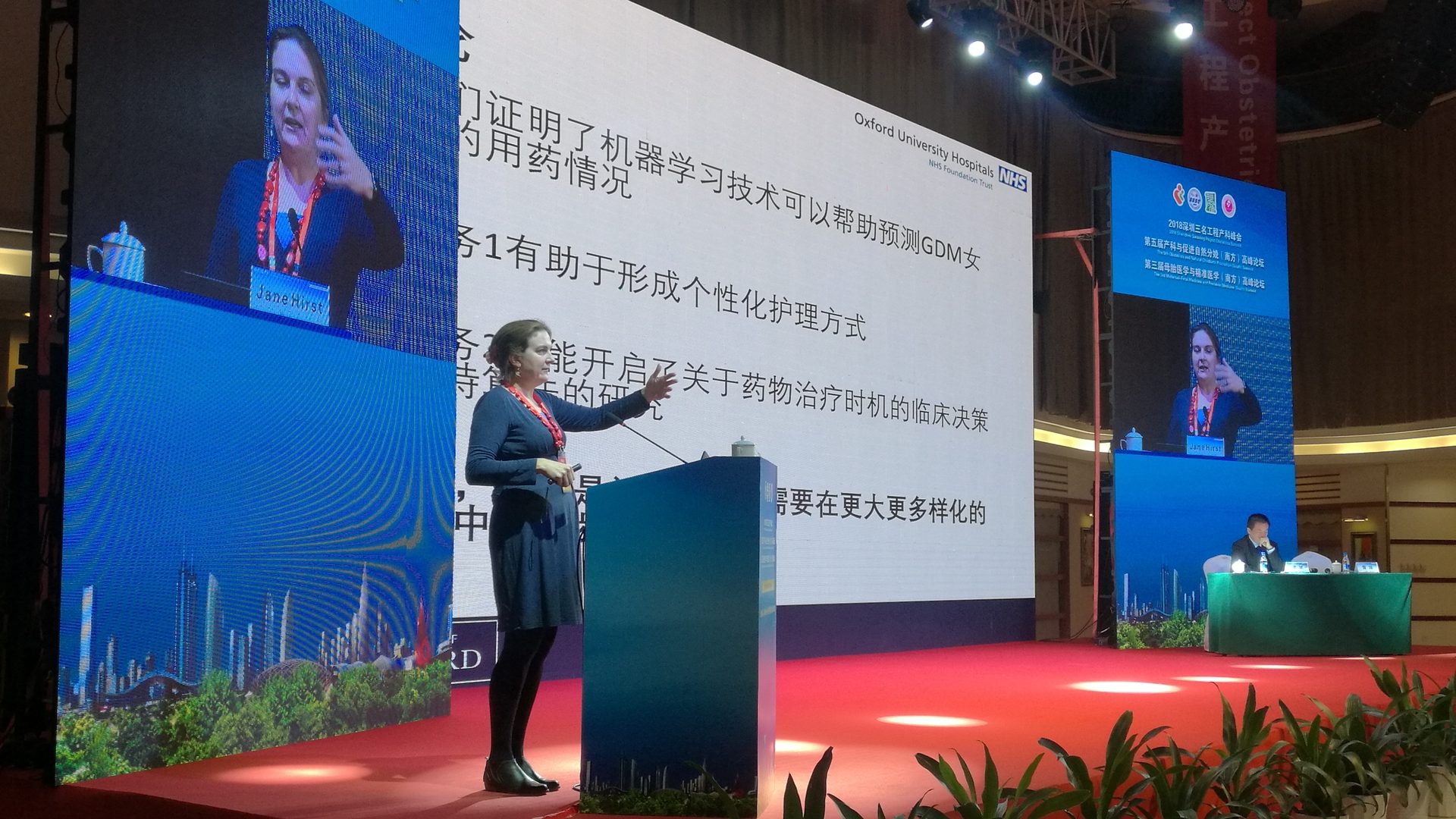
The George Institute contributes to the Sanming Project and outline development in the medical field of Obstetrics
On 9 December 2018. The George Institute for Global Health participated in the 2018 Shenzhen Sanming Project Obstetrics Summit, together with experts from academia, health services and industry, to discuss paths for innovation and development in the field of obstetrics.
Hosted by Shenzhen Maternity and Child Healthcare Hospital, Shanghai First Maternity and Infant Hospital, and Renji Hospital affiliated to Shanghai Jiao Tong University School of Medicine, the Summit aims to establish a platform for academic exchange, build consensus, and promote cooperation amongst a broad range of health professionals across the fields of obstetrics, maternal-fetal medicine, reproductive health, maternal and child healthcare, and obstetrics-related vascular, endocrine, intensive care, epidemiology, chronic disease prevention and treatment, basic research and biotechnology. The goal is to jointly explore plans for ‘whole life cycle’ health management that incorporates major chronic disease prevention and control, and facilitates innovation and development in obstetrical care.
Professor Amanda Henry and Professor Jane Hirst, Senior Research Fellows from The George Institute for Global Health offices in Sydney and Oxford, respectively, gave lectures on Heart-breaking: Pregnancy, preeclampsia, and cardiovascular disease and The digital future for managing gestational diabetes mellitus, at the Summit. They shared their experience of early intervention of gestational hypertension and diabetes in Australia and UK.
Ms. Chen Huan, Head of Women’s and Child Health of The George Institute China, said, “The Sanming Project is a significant innovation project that can greatly benefit people’s livelihood. Since its launch in 2014, the Project has achieved remarkable results. We are very honoured to be part of this activity, to make a contribution to the maternal and child health, and to the prevention and control of and chronic diseases in China.”




